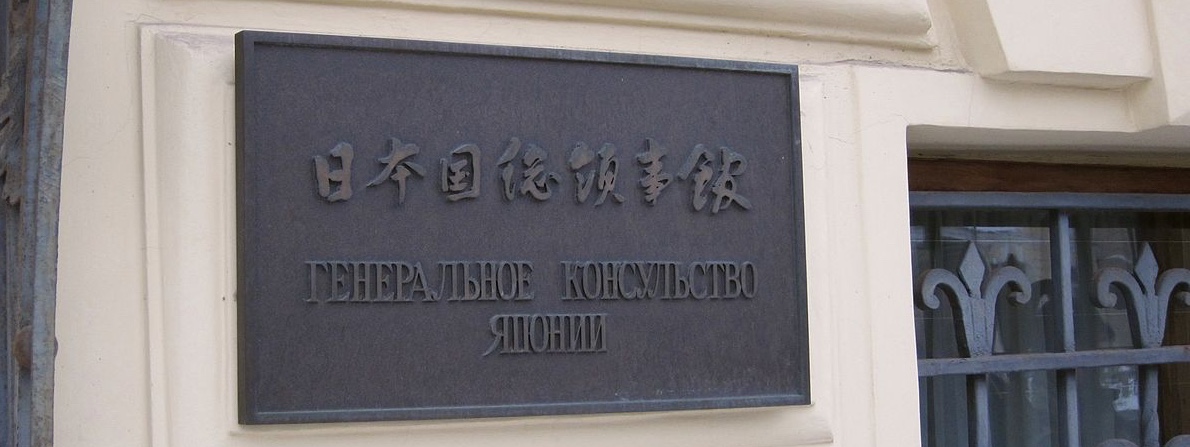
Bilingual Communication
Bilingual Communication
QR Link
Preparation
Transcript
Greg O’Keefe: Just to get back to a useful phrase for returning to a previous conversation topic (0:00)my um (Go) the Kyudaiis Japanese shorthand for Kyushu Daigaku. “Daigaku” means “university” (0:01), what I’m- So basically all my classes are in Japanese (OK) at Kyudai. And all my…
José Cruz: The ones you take you mean. (The ones I take) Yeah I got confused when you said “my classes” I naturally thought of you as an instructor…
Greg: This is what happens when you’re teaching and you’re a student. (Yeah yeah) So uh, all my classes that I take care in Japanese (mm-hmm) and my teacher and my advisor does all his advice in Japanese all the way (Oh OK OK). And all the work that we do together all the emails we exchange- everything’s in Japanese. (Really) My ronbunJapanse for ”essay” or “paper” (0:25) is in- is in English-
José: Your paper, your main thesis.
Greg: My my paper. I’m sorry. My journal at work is all in English and when I’m doing my interviews whi- with people I do them all in English just because I’m dealing with western foreigners that’s my research.
José: But your your advisors of course read English superbly well enough to uh be able to to look at your paper and critique it right?
Greg: Actually my my, my teacher actually speaks English, but he won’t uh ever, he’s never spoken…
José: Spoken English to you.
Greg: Very rare- I’ve heard him spokeGreg made a small mistake in his grammar. He should have said “speak” (0:53) English but- what happens is you have the uh the graduate students come in (uh-huh) and they can’t speak Japanese so he’ll speak English to them. (uh-huh) And uh, because they’re still starting out (uh-huh). And I’ve heard him speak, you know he speaks fine, (uh-huh) but he’ll never speak English to me.
José: Well, I I know what exactly what that- that feel- what- or I’ve seen it and I’ve experienced it myself. Um when I meet a a new Japanese person for the first time (mm-hmm) and if I don’t know anything about them, of course I’m going to start speaking Japanese with them. (That’s right yeah) And if they start speaking Japanese with me we sort of create this Japanese um, um bridge in our communication relationship. (Mmm) And then I find out a little bit later they’re actually English teachers, and they actually speak English but not that well, and they’re actually just more comfortable speaking Japanese with me. And when they speak English with me, they seem, if you look at them in terms of appearance, they seem to feel embarrassed speaking English with me, because they’ve already established a Japanese relationship with me. And I- and I feel the same way when I ‘m speaking Japanese or English with somebody else who’s bilingual, “I’ve only known you in Japanese, I’ve only ever spoken to you in Japanese” (uh-huh) and suddenly the switch in English seems unnecessary and strange, (right) unless there’s an idiom or a term (right) that I simply can’t say in Japanese.
Greg: Well I I prefer when uh, when the language has been decided (Yeah). When people are kind of wondering if they should be using English or Japanese and they’re switching back and forth, uh I don’t know some people are good at that, but I’m not very good at that I- because I’m a different person when I speak Japanese.
José: I am too, yeah. I know I am.
Greg: When I speak English and Japanese. So it’s hard for me to switch back and forth, because I’m not just switching language, I’m switching cultures, I’m switching the way I think basically, (mm-hmm) just the foundations of, of how I uh, see the whole conversation playing out (mm-hmm) Um, I when I speak Japanese I’m pulling information out of, for example, the Japanese news from last night that people in English wouldn’t understand, or or just examples from something in English (But) I would do the same thing in English but so people who- uh Japanese might not understand that, so I don’t like to mix the languages. I like to keep it in one plane …
José: But are you talking about a situation where you with- you are with fluently bilingual people or you’re with monolingual people and you’re the one doing all the code switching?
Greg: Well, I mean you know fluently bilingual people it just tends to be natural that you might use both. But for the most part I think the conversa- My wife and I only use Japanese and… When we first met, I mean there was a little bit of English and Japanese pull but you know to be honest with you after the first couple ofpronounced quickly as “KUPLA” (3:12) months or something it was just, just completely Japanese, and then it felt much more comfortable. And I’ve heard other friends of mine who’ve struggled back and forth with which one they should be using. I I think it’s too much of a hassle. More important to maintain the relationship (Yeah exactly yeah) than it is to actually worry about improving this person’s (Yeah sure) English or that person’s Japanese.
José: Yeah at a certain point you’re way beyond that level (Yeah that’s right). It’s not, It’s it’s almost um beyond that sort of commercial industrial level of relationship. (Yeah that’s right) You’re actually with a person (I agree) and that person is more important than your communication tools.
Greg: Yeah that’s right I agree with that, yeah.
Consolidation
QR Link
Access this article on your mobile device

Bilingual Communication
Speakers

Greg O'Keefe
American
Boston, Massachusetts

José Domingo Cruz
Canadian
Vancouver, British Columbia
Statistics
- words (including pause words)
- minutes in the mp3 audio
- words per minute for this article
Continue practicing your English fluency with the related posts above, or navigate to other authentic conversations using the Previous and Next buttons below.
Spritz
To spritz only part of this conversation, highlight the text you want and click the “SPRITZ NOW!” button. Clicking the button without any text highlighted will spritz the entire page.
To quickly adjust the words per minute (wpm), you can use the left and right arrow keys.
Writing comments will help your English writing skills. Feel free to ask questions and share opinions. We try to respond to all comments we get on the site. test




0 Comments